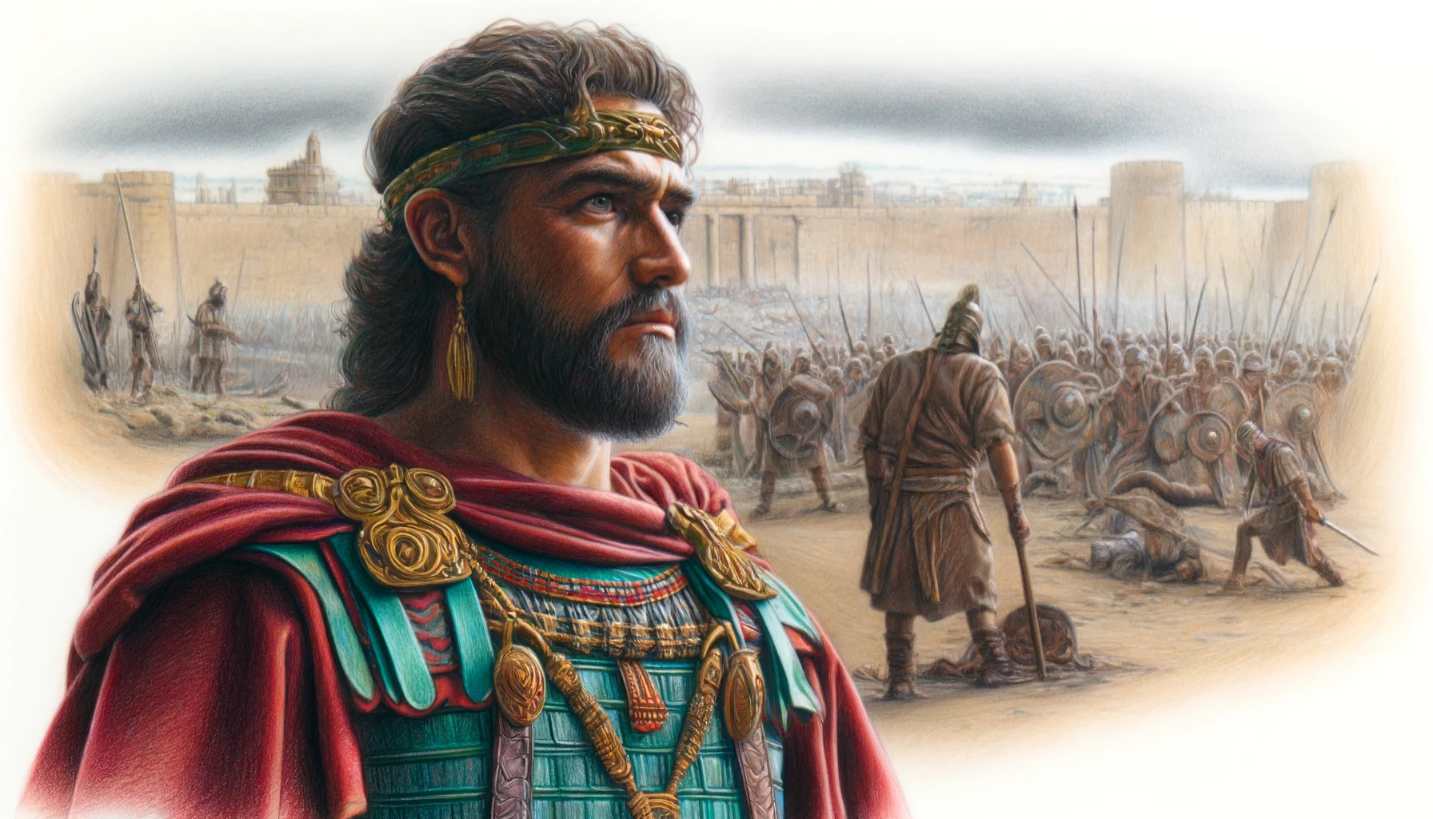
Uriah the Hittite: The Loyal Soldier
Uriah the Hittite: Quick Facts
Uriah the Hittite is a lesser-known yet significant figure in the Bible, known for his loyalty and tragic fate.
- Role: A valiant soldier in King David’s army.
- Heritage: A Hittite by origin, demonstrating the inclusiveness of David’s forces.
- Marriage: Husband of Bathsheba.
- Loyalty: Displayed unwavering loyalty to his comrades and King David.
- Tragic Fate: Unwittingly sent to the front lines to be killed, following King David’s affair with Bathsheba.
- Legacy: His story highlights the themes of loyalty, betrayal, and the moral consequences of sin.
Detailed Analysis of Uriah the Hittite
Uriah the Hittite, a lesser-known but crucial figure in the Bible, is best remembered for his loyalty and the tragic circumstances of his death. His story is intimately tied to one of King David’s most grievous sins and serves as a poignant narrative about integrity, betrayal, and the far-reaching consequences of moral failure.
Historical and Cultural Context
Uriah lived during the reign of King David, around the 10th century BC. As a Hittite, Uriah was part of a people originally from Anatolia (modern-day Turkey), but he had integrated into Israelite society. His inclusion in David’s elite group of “mighty men” (2 Samuel 23:39) indicates his valor and esteemed position in the army, reflecting the diverse makeup of David’s forces.
Loyalty and Character
Uriah is primarily noted for his unwavering loyalty and integrity. When King David summoned him back from the battlefield, Uriah’s conduct starkly contrasted with David’s deceit. David intended for Uriah to go home and spend time with his wife, Bathsheba, to conceal David’s adultery with her (2 Samuel 11:6-8). However, Uriah, displaying remarkable dedication, refused to enjoy the comforts of home while his fellow soldiers were camped in the open field (2 Samuel 11:11).
This act of loyalty underscores Uriah’s strong sense of duty and solidarity with his comrades, highlighting his honorable nature. His refusal to indulge in personal comfort while his fellow soldiers endured hardship reveals a profound commitment to his role and responsibilities.
The Tragic Plot and Death
David’s plan to cover up his sin with Bathsheba failed due to Uriah’s integrity. Consequently, David resorted to a more sinister plan, instructing Joab, the commander of the army, to place Uriah at the front lines where the fighting was fiercest and then withdraw support, ensuring Uriah’s death (2 Samuel 11:14-15). This plot succeeded, and Uriah was killed in battle (2 Samuel 11:17).
Uriah’s death was not only a personal tragedy but also a moral low point for David. The king’s actions led to severe consequences, both personally and for the nation of Israel. Nathan the prophet later confronted David, declaring God’s judgment upon him and his household, leading to a series of calamities (2 Samuel 12:7-12).
Theological Insights
Uriah’s story offers several profound theological insights:
- Integrity and Honor: Uriah’s actions exemplify the virtues of integrity, loyalty, and honor. His commitment to duty, even at the expense of personal comfort, sets a high standard for moral conduct.
- Consequences of Sin: The narrative starkly illustrates the devastating consequences of sin, particularly for those in positions of power. David’s adultery and subsequent actions led to immense personal and national turmoil.
- Justice and Accountability: God’s response through the prophet Nathan emphasizes divine justice and the principle that leaders are accountable for their actions. Despite his initial attempts to conceal his sin, David ultimately faced severe repercussions.
Conclusion
Uriah the Hittite’s story, though tragic, serves as a powerful reminder of the importance of integrity and the dire consequences of moral failings. His unwavering loyalty and the injustice he suffered underscore the need for righteousness and accountability in leadership. Uriah’s legacy endures as a testament to the virtues of honor and the sobering reality of divine justice.



